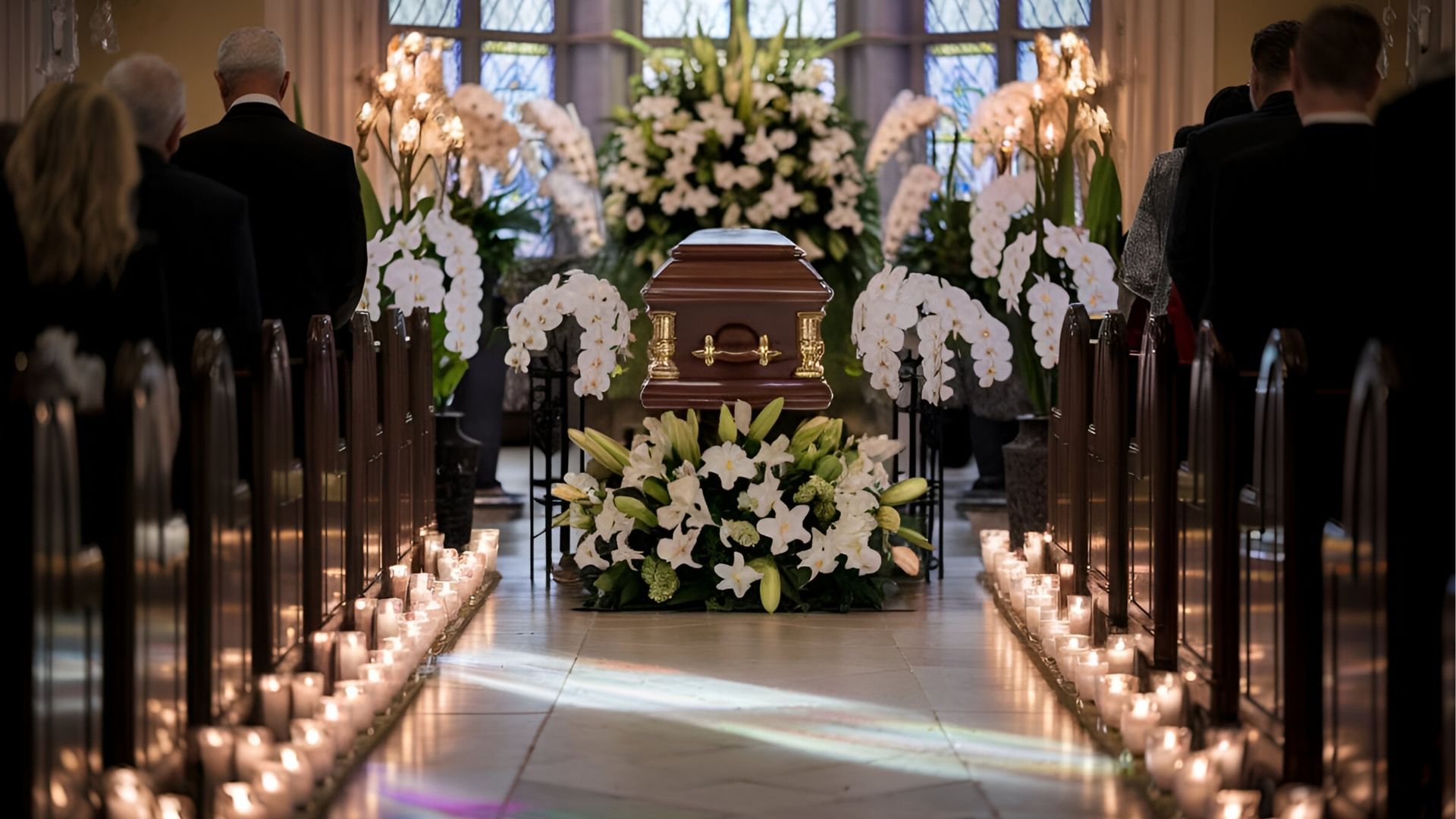Who is responsible for arranging a funeral?
When a person dies, their loved ones usually plan a funeral. Learn who should take responsibility for it.

When a person dies, the most pressing task is arranging the funeral. Many people, however, only learn about this process when the time comes. This can pile up stress at an already difficult time.
In most cases, the person responsible for arranging a funeral is the next of kin. This is the person who was the closest living relative to the person when they died.
There's an order of priority to next of kin. It goes:
- Spouse
- Adult children
- Parents
- Siblings
However, the next of kin isn't always responsible for arranging a funeral. If the person who died left a will, they will probably have named an executor. This is the person responsible for dealing with the estate (the money and possessions the person left behind).
If the executor is a different person from the next of kin, the next of kin might play a role in arranging the funeral. However, they don't have legal responsibility. This is partly because the executor has access to funds to pay for the funeral.
This is one reason it's so important to find the will after a person has died. It can have an immediate effect on who will organise the funeral. It's also one reason why it's so important to make one during your own lifetime.
Who has the right to organise a funeral?
If there's a valid will, the named executor will organise the funeral – and the executor's decision is final. This is the case even if there are objections from family, friends or community groups about the nature of the burial, cremation or service.
If there's no valid will, responsibility for organising a funeral usually falls to the next of kin. The rules of intestacy can apply. These are rules that decide who deals with the estate.
If there's no family and nobody else is available to pay for the funeral, the local government will hold a public health funeral. This is a simple service that makes sure the person is laid to rest with dignity.

Disputes about funeral arrangements aren't unheard of. The ideal situation is for them to be resolved before the funeral takes place. In rare cases, however, the matter has to be resolved in court.
Who has to pay for a funeral?
If there's a will, the named executor has access to the funds and assets of the person who has died. These can be used to cover funeral costs. Alternatively, the person may have put aside money for a funeral or taken out life insurance or a funeral plan.
For the executor, arranging the funeral is just one part of their role. They also have to pay off debts and distribute assets (money and possessions) among the people named in the will.
If there are no available funds in the person's estate, this doesn't mean that the next of kin has to shoulder the cost of the funeral.
There are government support schemes in place. These include the
Funeral Expenses Payment, the
Bereavement Support Payment,
Budgeting Loans and the
Children's Funeral Fund for England. Different schemes are in place across the four nations.
Families may also be eligible for payment plans to make payments more manageable.
If there's still no money to fund the funeral, the local council will hold a public health funeral. This is a simple service held at a date and time chosen by the council.
How do you arrange a funeral?
In the UK, arranging a funeral typically involves choosing a funeral director. They can help you plan the burial or cremation and the service.
Some funeral directors specialise in funerals for a particular faith or background. Others, like us, work with people from all backgrounds.
You can find a funeral director through the National Association of Funeral Directors or by looking online. You may also know of a local funeral director in your area. This can be convenient at a difficult time.

Alternatively, you can arrange the funeral yourself. This can be cheaper than going through a funeral director – and some people like the level of control it allows.
It's worth bearing in mind, however, that there are many tasks to complete when arranging a funeral. You should be sure you feel up to it before taking on all the arrangements yourself.
When should a funeral be held?
In the UK, funerals are typically held a week or two after somebody dies. Some religions, such as Judaism and Islam, tend to hold funerals more quickly.
Before a funeral can take place, the death must be registered and a death certificate obtained.
Sometimes, the funeral takes place more than a fortnight after the person dies. This could be because of family circumstances, a coroner's inquest or the availability of a venue or funeral director.
A memorial service can be held at any point. This is one reason for their increasing popularity.
How can a funeral director help arrange a funeral?
If you're responsible for arranging a funeral, you may worry that you have a lot of responsibility on your shoulders.
Reaching out to friends and family can be a good idea. But there's no need to carry the burden alone. A funeral director can help you arrange a funeral and reduce your stress at a difficult time.
Funeral directors can handle lots of essential tasks for you. They will arrange for the person who died to be transported to the cemetery or crematorium. They will handle difficult paperwork.
They can talk you through
your options for burial or cremation. They can help select a venue. They can also help choose a coffin, floral decorations and other practical tasks.
Akshardham Funeral Directors is an independent
London funeral home with 20+ years of experience. We provide a listening ear to people of all backgrounds and faiths to help them arrange the funeral they want.
Do you need our support? Please call on 020 8355 7876 – our lines are always open.












